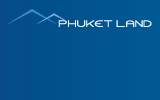Further Reading:
Nominee Matters
Question:
Is it true that there are anti-nominee provisions (with severe penalties for contravention) that may apply to a Thai limited landholding company where a foreigner holds shares (up to 49%) and is the sole authorized director?
Answer: It must first be pointed out that the anti-nominee provisions referred to are found in the Foreign Business Act, 1999 (“FBA”) and not in any of the land legislation, the principal one being the Land Code, 1954 (“Code”).
Under the FBA, foreigners are prohibited from holding 50 per cent or more of the shares of a Thai company operating a restricted business.
The anti-nominee provisions in the FBA prohibits unlicensed foreigners or a Thai person(s) acting on behalf of unlicensed foreigners, from owning and/or operating businesses that are restricted under the FBA.
Any foreigner that engages in business in Thailand in violation of the restrictions imposed by the FBA will be liable to imprisonment for up to three years and/or a fine of between 100,000 and 1,000,000 Thai Baht. In addition, “the courts shall order the closure of the business ... or shall order termination of the shareholding or partnership”. There are no provisions for the seizure of assets.
If it is not envisaged that the Thai landholding company (“Company”) will be operating businesses that are restricted under the FBA, the abovementioned anti-nominee provisions are not applicable.
Under the Code, subject to certain exceptions, “aliens” may not own title to freehold land in Thailand . The definition of “alien” in the Code includes “a juristic person (meaning a limited company) with more than 49 per cent of its share capital being foreign owned or more than half of its shareholders being aliens”. In practice, the relevant land office currently will register a juristic person as the owner of freehold land as long as its foreign owned share capital does not exceed 49 per cent of its share capital.
In the worst case scenario, where an alien is found to have acquired freehold land, the Code provides that the alien must dispose of the said land within a period of time not less than 180 days and not exceeding 1 year. There are no provisions for seizure of the said land. Supreme Court decisions have even held that in such cases, the proceeds of the disposal belong to the alien.
Under both the FBA and the Code, there is no specific prohibition on foreign control (voting and management) of a Thai majority owned company. In fact, during its consideration of the draft FBA, a Senate committee introduced an amendment that would have deemed Thai majority owned but foreign controlled companies to be foreign. This amendment was not adopted as part of the final text of the new law and therefore Thai majority owned but foreign controlled companies remain permissible.
As discussed herein, there are a number of means can be used to ensure that the foreign minority shareholders have effective management and financial control of the company. As long as a proper structure is adopted which does not breach the relevant Thai laws, the interests of the foreigner minority shareholders can be adequately protected. It goes without saying that improper structures such as those that use trust, agency, nominee, etc. agreements may be open to challenge under the anti-nominee provisions of the law, as they would represent clear attempts to circumnavigate the law.


